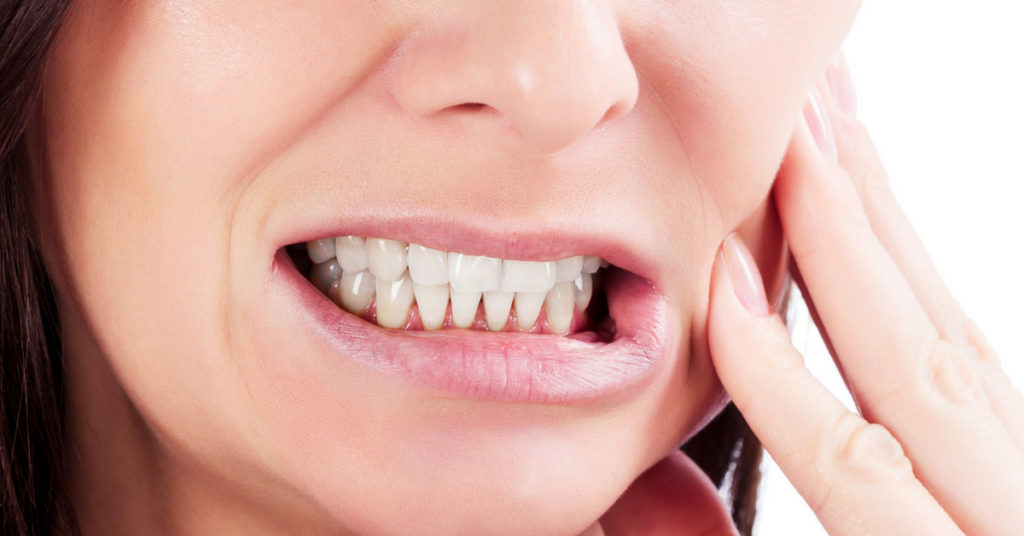Are you ignoring tell-tale signs that you are grinding your teeth at night? If you experience the symptoms of bruxism on an all-too-regular basis, then you need to seek your dentist’s help. When people ignore the initial signs of teeth grinding, it is almost certain that they will lead to bigger, more damaging effects.
The short-term symptoms of bruxism, or teeth grinding, include:
- Headache
- Earache
- Jaw pain
- Tight, stiff shoulders
- Swelling and receding gums
- Sleep disruption
- Can’t fully open your mouth
- Too much tooth mobility
If these symptoms are familiar and you suspect you might be grinding your teeth at night, it’s important to get help so that these short-term symptoms don’t turn into more serious, long-term problems. The effects of bruxism extend far beyond just oral health and the look of your pearly whites, the habit also affects your overall health.
When short-term symptoms are not taken care of, you likely will suffer the long-term effects of grinding, including:
- A wider face — When you grind excessively, it can result in the increased use of the masseter muscles at the back of the lower jaw. Continued clenching can cause these muscles to bulk up, giving the face a wider appearance and possibly causing jaw pain.
- Tooth damage — Grinding can result in enamel loss, making teeth more sensitive, and severe damage. The grinding back and forth can literally grind your teeth down to stumps, making the teeth shorter and less attractive. Grinding also can lead to fractures and even tooth loss.
- Migraines — Regular grinding all through the night can result in severe headaches or migraines.
- Temporomandibular joint dysfunction (TMJ) — This is often caused by limited mandibular movement in the mouth and tight jaw muscles. This movement sounds like the popping and clicking from the temporomandibular joints. TMJ can become chronic, painful and difficult to manage.
Tooth damage is one of the most obvious dangers of teeth grinding, and concern about the effects of grinding on your teeth is not just superficial. Bruxism can destroy your oral health. For example, if grinding is not treated early, it can result in stress fractures in your molars and your enamel. And any type of damage caused by tooth grinding puts you at risk of tooth decay and erosion, gum and periodontal disease, oral infections and even tooth loss. In some instances, extensive tooth restoration may be necessary, costing you thousands and a lot of pain along the way.
So, at the slightest hint of sleep problems or jaw pain, if you suspect you are grinding at night, please consult a dentist and check it out. The truth is, bruxism can wreak havoc on even the strongest teeth in a short amount of time.
One way to help protect your teeth from the nighttime grind is by wearing a quality mouth guard. Visit www.sleepright.com to find one that works best for your lifestyle.



